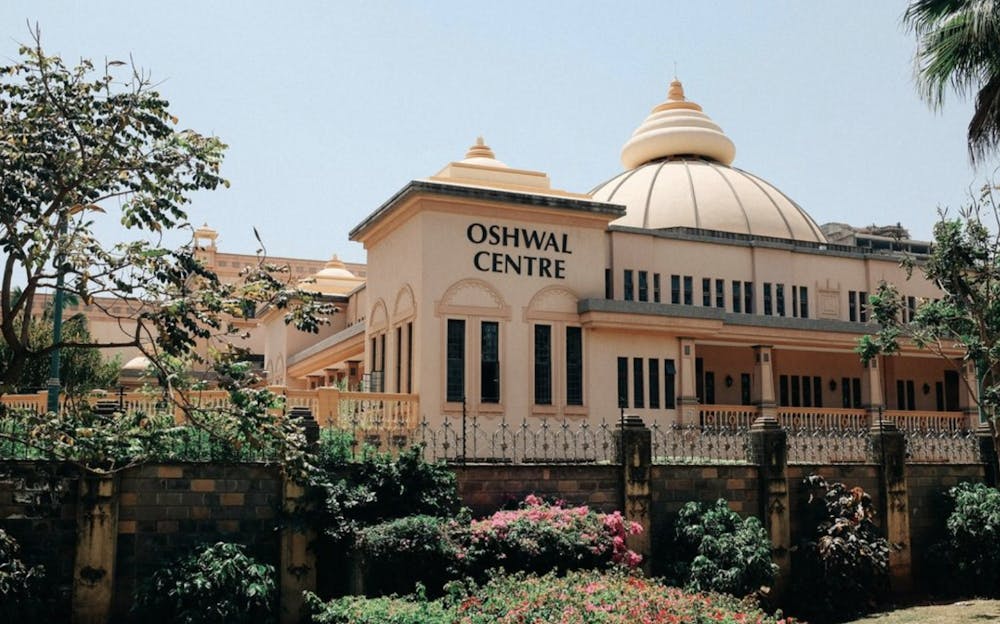My go-to response to any icebreaker question is that I speak four languages. It piques peoples’ interest, allows me to organically share the many places I call home and reminds me of my history. “I speak four languages.” This is not false, but I have to confess that it is not entirely true either. The story of my linguistic ability is a story not of my skill in speaking foreign languages, but a story of resistance and survival. It is the story of a migrant group that desperately and silently clings onto language as its sole claim to a heritage that was once violently stolen.
International Mother Language Day is celebrated every year on Feb. 21. At the insistence of Bangladesh, who fought with their blood for the right to speak their native language of Bangla, the United Nations created this holiday in 1999 to recognise linguistic diversity and the growing need to preserve linguistic history.
I grew up in Kenya. English was the marker of intelligence in the migrant community. It was the passport to success. What was spoken in the four walls of our kitchen was solely reserved for that kitchen. The migrant is thrust into the arena of English, as it becomes the great myth of equality: “If I can speak English, I can do anything.”
So what happens when a language begins to die out? Speaking a language is more than understanding a set of words and phrases. It is a living, breathing, sentient lens into the very society it flows through. Just under 50% of the world's 7,000 spoken languages are endangered, with one disappearing every two weeks.
I used to return home every day, after an exhausting day at my English-medium school, and immediately switch to speaking Gujarati. I was once embarrassed by how my grandmother, unable to learn English, would force me to speak Gujarati, the last marker of my ethnic connection to India. I also spoke Swahili, the Arabic-Bantu infused language of East Africa. Despite being the indigenous language of Kenya, I learnt Swahili as if I was a foreigner in Kenya, in a poor, thin and underdeveloped curriculum in schooling. English was pushed to the front by my family, government and eventually by myself.
English, Gujarati, Swahili. The markers of a British Indian Kenyan. No law, no politician, nothing can take my language away from me. That is, apart from myself. This is where I recognize that my truth is not the full truth. My mother’s tongue — the tongue of her mother and her mother before — is one I struggle to get through. My phone calls home turn from relief to a chore, reminding me of my inability to understand Gujarati grammar. I can't count past twenty, I can’t tell my grandmother how I feel because she cannot understand how I feel. We don’t speak the same language. I can't read or write Gujarati. The history of my family, immigration papers out of India in 1884, my grandfather's 1960 diary entries of his first decade in London, written in Gujarati, are all hidden to me.
My former disdain toward my language has now become my biggest weakness. The one physical connection I have to my history is disconnected. Tear-stained pages of migration, hope, failure and growth remain hidden to me. I will likely never learn to read them. I have met Americans who speak better Swahili than me. I boldly claim my Kenyanness and, as I put on my Kenyan bracelet every morning, I am reminded of my fear of speaking with other Kenyans. They cannot know of my second shame. My Swahili is nearly all but forgotten.
This is the curse borne by migrants and their descendants. English becomes our sole way to look to the future, yet in doing so we forget our past. Gay, lesbian, printer, ambulance, divorce. Words that do not exist in Gujarati. Om, aarti, najjar, shakti, shaak, kismet, baa. Words that do not exist in English. I see my younger siblings, children of the global south, becoming English speaking patriots, tourists in their home countries, adding flags to their social media bios. Forgetting. I am learning to speak Chinese at Middlebury. I can now speak to someone in Mandarin Chinese, write beautiful characters and access a rich literary history. Yet, I am forgetting how to speak with my soul.
I call my sister and she makes me laugh. We speak Kenyan Gujarati, a dialect that belongs to so few. As she speaks to me, my accent changes; my mind breathes, I feel my memories flowing back into me. This is what linguistic heritage and resistance does. We remain ourselves. The migrant can grow, the migrant should grow. In fact, the migrant will one day not even be a migrant anymore. But their skin, feet and soul will not forget. They will yearn for the soil, scent and sight of their homeland. And only if they listen to their soul, appease it and allow their native language to flow through them once again, can the migrant survive.
Feb. 21 reminds us to let ourselves speak. Language is more than a set of sounds, but a canvas of history. So yes, I do speak four languages. I can’t read or write one, and I hide behind my shame when the other appears. This is not the problem. I speak the language of my colonizer better than that of my mother. This is the problem.
Yuvraj Shah (he/him) is an Opinions Editor and a member of the Editorial Board.
He has a wide range of public speaking experience, and has spent the past two summers interning with the New England Review and Middlebury College Admissions. Yuvraj is joint majoring in English and History and minoring in Chinese. He hails from London, U.K. and Nairobi, Kenya. He is a UWC Davis Scholar.




